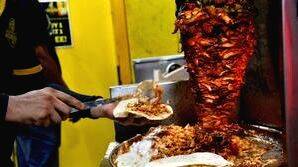

THIRUVANANTHAPURAM: Shawarma, a favourite among foodies is under suspicion for its potential health risks. It's believed that a local man from Kottayam Kidangur named Rahul recently died due to suspected food poisoning from Shawarma. This deadly threat is associated with Staphylococcus bacteria that can thrive in aged meat.
The danger with Shawarma lies in the Staphylococcus bacteria present in the meat. Even when cooked at high temperatures these bacteria can survive causing food poisoning. The handling of Shawarma by people with Staphylococcus on their hands can also lead to contamination.
Food poisoning symptoms can appear within two to six hours of consuming contaminated Shawarma. If you experience food poisoning a couple of days after eating Shawarma, it's crucial not to ignore it and attribute it solely to the Shawarma.
It's worth noting that mayonnaise served with Shawarma can also contain harmful bacteria, specifically salmonella which may be present due to raw egg use. When eggs are used to make mayonnaise, the bacteria from the eggshells can mix into the whites. Since egg-based mayonnaise is typically uncooked, the risk of food poisoning is significantly higher. Mayonnaise is rich in protein which allows bacteria to multiply rapidly. Many restaurants, hotels and food trucks often store mayonnaise in the fridge for a day increasing the danger.
In response to food poisoning cases, the health department has prohibited the use of raw eggs in mayonnaise. This mandate came into effect earlier this year, requiring the use of pasteurized eggs for mayonnaise. Unfortunately, no specific testing is currently being conducted to enforce this.
To minimize these health risks, remember not to reheat cooked meat and prepare mayonnaise only for the day it's needed. It's crucial for those handling and serving food to maintain strict cleanliness standards.
Dr TS Anish, Associate Professor, Government Medical College Manjeri